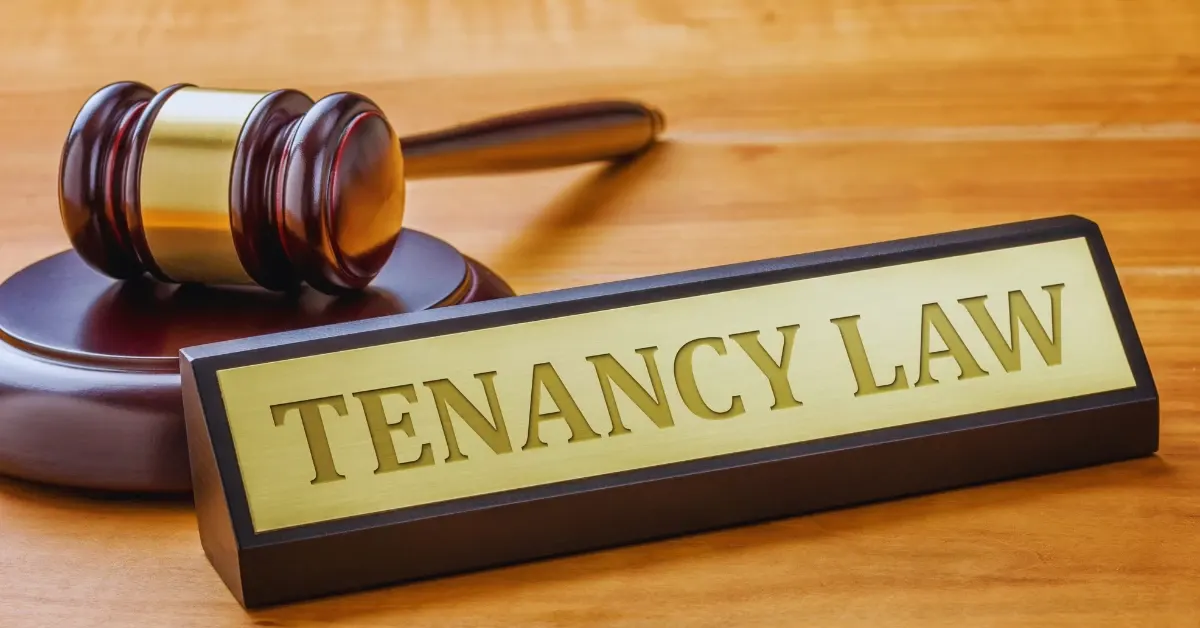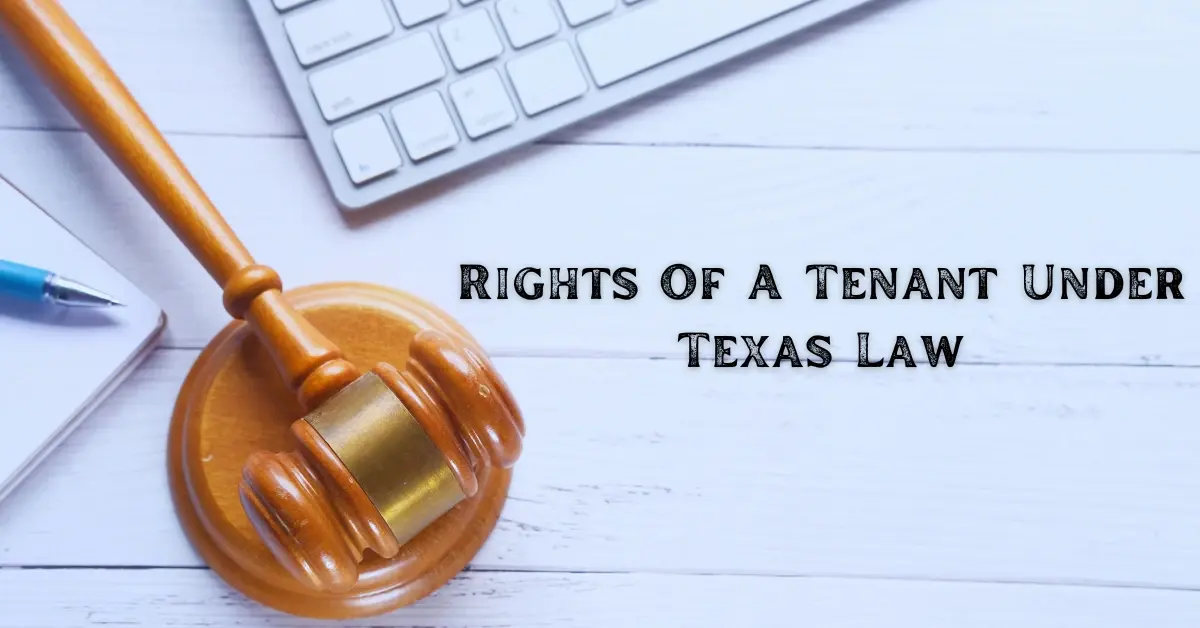Texas Law: When Does a Guest Become a Tenant in Texas?
A guest becomes a tenant in Texas if they stay for more than 30 days or if they pay rent. In Texas, the law considers a person as a tenant if they occupy a dwelling unit with the owner’s or landlord’s permission.
As a tenant, you have the right to a habitable residence, privacy, and protection against discrimination. On the other hand, landlords must maintain the property, provide security devices, and follow proper eviction procedures.
This article will discuss when a guest becomes a tenant in Texas and much more.

Understanding The Concept Of A Tenant According To Texas Law
As a state with a large population, texas has its own set of laws regarding tenants and guests.

Understanding these laws is important, especially if you own or manage rental properties.
Differentiating Between Guests And Tenants
Knowing the difference between a guest and a tenant is critical for landlords and tenants alike. Here are some of the key differences:
- A guest is someone who may stay in a rental property for a short period and is not paying rent or any form of compensation.
- A tenant, on the other hand, is someone who has signed a lease agreement (oral or written) or has a verbal agreement and is paying rent or any form of compensation for a residential unit.
Defining A Tenant According To Texas Law
According to Texas law, a tenant is defined as a person who is authorized to occupy a residential unit by a lease agreement, oral or written, or the occupant of a dwelling unit who has established a “history of being a tenant” in the property.
Here are some of the key points to keep in mind regarding Texas tenant laws:
- Texas tenants have certain implied rights.
- These include the right to a habitable residence, the right to quiet enjoyment of their home, the right to privacy, and the right to be protected from discrimination.
- Lease agreements must include disclosure of certain information, including the name and address of the property owner and manager.
- Tenants who are victims of domestic violence have the right to terminate their lease without penalty.
Identifying When A Guest Qualifies As A Tenant In Texas
A guest may qualify as a tenant in Texas in certain situations, even if they are not listed on the lease agreement. For this to occur, they must meet certain criteria.
- A guest may become a tenant if they have been living in the same residential unit for a significant amount of time and have been paying rent to the landlord.
- Alternatively, if the landlord has accepted rent payments from the guest multiple times, this could also be considered evidence of a tenant-landlord relationship.
- In addition, if a guest has received mail at the residence under their name, it could be assumed that they have established residency.
Tenant Rights In Texas: Legal Implications For Both Parties
If you’re a landlord, you’ve probably had a guest or two stay on your property at some point.
But what happens when that guest starts to stay a little too long, or when they start paying you rent?
In Texas, you need to understand the legal implications of when a guest becomes a tenant.
Let’s dive into tenant rights in Texas, as well as the legal obligations of both parties.
Rights Of A Tenant Under Texas Law
As a tenant in Texas, you have certain rights that are protected by state law.

It’s essential to understand these rights so that you can make informed decisions and advocate for yourself if necessary.
Here are some of the tenant rights that you should know about:
safe and habitable dwelling
Landlords must provide tenants with a safe and habitable residence. This includes ensuring that the property is free of hazards and that it meets local building codes.
privacy
Tenants have the right to privacy in their rental units. Landlords may not enter the unit without giving proper notice, except in emergency situations.
proper notice before eviction
If a landlord wants to evict a tenant, they must provide written notice before proceeding with an eviction lawsuit.
security deposit
At the end of the lease term, landlords must return the tenant’s security deposit, minus any deductions for damages or unpaid rent.
Responsibilities Of A Tenant According To Texas Law
While tenants have rights under Texas law, they also have certain responsibilities.
These responsibilities are essential to maintaining a good relationship with the landlord and ensuring that the rental unit remains in good condition.
Here are some of the tenant responsibilities in Texas:
- Paying rent on time: Tenants must pay rent on time according to the terms of their lease agreement.
- Maintaining the rental unit: Tenants are responsible for keeping the rental unit clean and in good condition. They must also report any damage or needed repairs to the landlord promptly.
- Following the terms of the lease agreement: Tenants must follow the terms of their lease agreement. This includes adhering to any pet policies, not subletting the unit without permission, and using the rental unit only for its intended purpose.
The Legal Obligations Of The Landlord
Just as tenants have rights and responsibilities, landlords also have legal obligations that they must adhere to.
These obligations protect tenants and ensure that they are treated fairly. Here are some of the legal obligations of a landlord in Texas:
- Providing a habitable rental unit: Landlords must provide tenants with a safe and habitable rental unit.
- Giving proper notice before entering the rental unit: Landlords must give tenants proper notice before entering the rental unit, except in emergency situations.
- Returning the security deposit: Landlords must return the tenant’s security deposit at the end of the lease term, minus any deductions for damages or unpaid rent.
- Providing written notice before eviction: If a landlord wishes to evict a tenant, they must provide written notice before proceeding with an eviction lawsuit.
Frequently Asked Questions On When Does A Guest Become A Tenant In Texas
What Is The Difference Between A Guest And A Tenant In Texas?
In Texas, a guest is someone who temporarily stays in a property, while a tenant is allowed to reside on the property under a lease agreement.
At What Point Does A Guest Become A Tenant In Texas?
A guest becomes a tenant when they have established a substantial connection to the property and have been residing there for an extended period.
What Rights Do A Tenant Have That A Guest Does Not In Texas?
In Texas, tenants have the right to privacy, to a safe and habitable living environment, and protection against wrongful eviction, while guests do not have these rights.
Can A Guest Become A Tenant Without Signing A Lease In Texas?
Yes. In Texas, a tenant is someone who has established a substantial connection to the property based on factors like payment of rent, duration of stay, and evidence of intent to reside on the property.
Conclusion
Navigating the transition from guest to tenant in Texas can be a tricky journey.
But once you understand that a stay extending beyond 30 days, an exchange of money, or establishing residency usually draws the line.
You’ll manage this process with confidence. Protect your rights and avoid potential pitfalls with knowledge in hand.
Reference
https://guides.sll.texas.gov/landlord-tenant-law/ending-the-lease